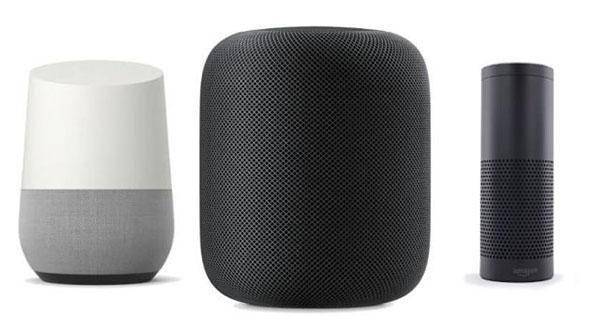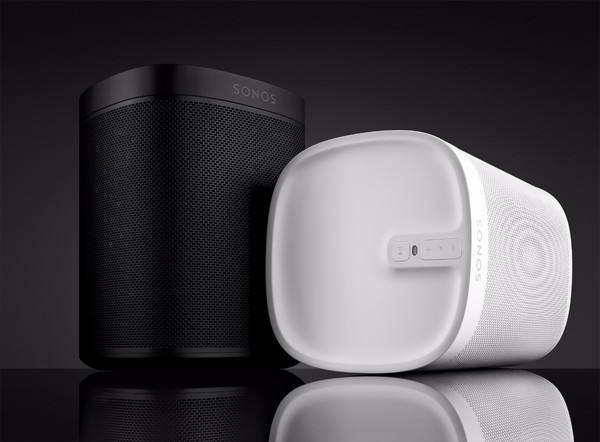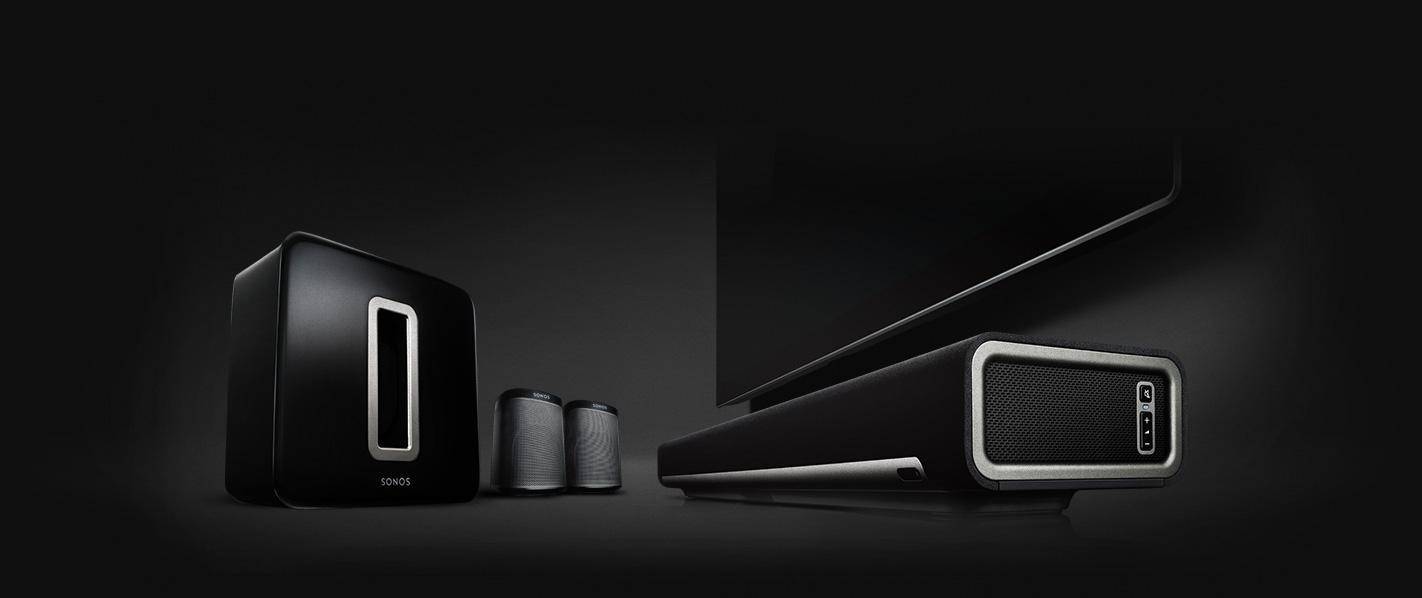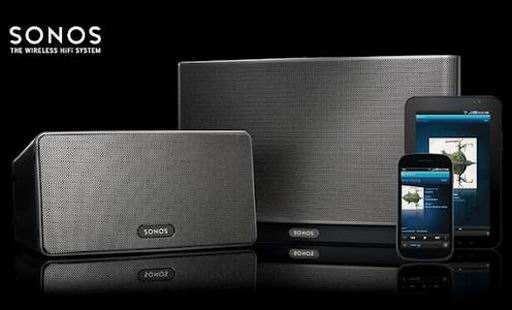OFweek Smart Home Network News In November 2014, Amazon released the smart speaker Amazon Echo. In May 2016, Google brought Google Home smart home devices. At the end of 2016, Microsoft and Harman Kardon cooperated to launch Smart Speaker Invoke. In June 2017, Apple released HomePod. In the smart speaker market, Google, Microsoft, Amazon, and Apple's several giants arrived.
Some analysts believe that smart homes will determine the pattern of the technology industry in the next decade. For any giant, it is a strategic high ground that cannot be lost. The addition of these giants once again verified: "The next battlefield will happen at home."
Wang Hanhua, president of Sonos China, a wireless speaker company in the United States, agrees. He pointed out that smart speakers, which are considered as smart home entrances, have become the standard for technology giants, and competition will become increasingly fierce.

Speakers from Google Apple Amazon (from left to right)
Compared with Amazon, Google, and Apple, the three companies each have their own advantages. Amazon Echo is the first explosive product in the field of smart speakers, and it is also the fastest. In addition to voice songs, Echo can provide users with more Yuan services, such as calling Uber, ordering Pizza, querying weather and even bank accounts. Wang Hanhua believes that Amazon's other killer is a powerful channel capability. As the leader of online retail, its online sales channel traffic is staggering, Amazon's re-addition plus grounding gas pricing (Echo sells for $ 140, Echo Dot is only 49 US dollars ), Echo's market share in the United States has grown rapidly. According to report data released by eMarketer, a market consulting company, approximately 70.6% of U.S. voice intelligent speaker users this year use Amazon products.
Google's advantage is in intelligent speech technology (speech recognition and semantic understanding, etc.), which is the technological basis of smart speaker "smart". In a test at Stone Temple, Stone Temple attempted to ask the device about 5,000 questions, of which Google's Google Assistant responded with 68.1% and the accuracy rate was 90.6%; Amazon's Alexa was 20. 7% and 87%; Apple's Siri was 21.7% and 62.2% respectively.
For Apple, its brand is a big help. Unlike Amazon and Google, Apple introduced the Homepod to emphasize the importance of sound quality. Cooke also emphasized in an interview recently that the primary function of HomePod is music, not smart home.

Sonos speaker
This also means that Apple, which emphasizes its own speaker properties, has the most obvious competitive relationship with the Sonos speakers compared to Amazon and Google, which are "smart and light speakers." Wang Hanhua is not worried about this. He believes that the release of Apple's HomePod does more harm than good to Sonos, making smart speakers more popular. The more important reason is that he believes that the three major giants are really competing for the high ground occupying the Home OS. The smart speakers are only carriers.
"Jeff (Jeff Bezos) is not the purpose of doing Echo speakers, but to create an ecosystem belonging to the Amazon," said Wang Hanhua. Wang Hanhua, who had worked at Amazon for 8 years, knows the layout of Jeff Bezos very well. In addition to providing music services, Amazon Echo shows people how it integrates various home appliances in the home via "Alexa Skills" and how to retrieve it. Third-party service platform.
Compared with making a simple intelligent hardware speaker, access to huge user data and access to software services, as well as the construction of their own core ecosystem, is the tech giant really value. Wang Hanhua believes that the ideas of Apple, Amazon and Google are the same: Voice Assistant + speaker + ecosystem.
The core of the problem lies in the incompatibility of the three ecosystems. For example, Apple Music cannot be heard on Echo, and music on YouTube cannot be heard on HomePod. The competitive relationship between the three is also destined to not share ecology between the three parties, and can refer to the relationship between iOS and Android. However, in the long run, this is very harmful to the user experience and it is not conducive to the development of the industry. Therefore, it needs a third-party product to get through.
Wang Hanhua said that Sonos' positioning is to connect all voice assistants through Sonos's speakers. "For example, the user's home is generally not less than 10 household appliances. It is unlikely that all products come from a single voice control system. We hope to have Sonos in the home. What can we say about Amazon, what Google does, and what does the University of Science and Technology? Provide users with a more convenient platform."

In August 2016, Sonos announced cooperation with Alexa, Amazon’s voice platform
This positioning has been implemented since last year. At the end of August last year, Sonos worked with Alexa, the Amazon voice platform, to connect with Spotify music. Sonos will always discuss forms of cooperation with Google and Apple. In the second half of this year, Sonos will launch a product that will showcase AIO (All Voice Assistant in One), but Wang Hanhua said that it is not yet possible to reveal more news.
Sonos will also take the same plan in China. At present, BAT and some well-known manufacturers are doing smart speakers, such as Alibaba announced that they will cooperate with the Himalayan FM to develop smart speakers, Tencent is also promoting the smart speaker project, Jingdong and HKUST jointly launched the smart speaker. According to Phoenix Technology, the next two months, several companies, including Xiaomi, going out and asking questions, and cheetahs, will release smart speaker products.
In Wang Hanhua's view, Sonos's gene is an open platform. The experience of working with Amazon can be used for reference in China. Sonos has always been very concerned about the manufacturers of the voice technology solutions such as HKUST, and hopes to integrate Sonos products with different domestic manufacturers in the future. Voice technology.
However, in the process of attempting to open up the platform in China, the biggest problem that Sonos encounters at present is the lack of software engineers. They want to integrate different voice control systems into the Sonos platform and face many technical problems such as API (Application Programming Interface) instability.

"For example, when discussing with some voice technology vendors, we both have the willingness to cooperate, but due to the lack of professional software engineers, some processes have become slow," Wang Hanhua said.
Electronic Components Transformer
Transformer is a device that USES the principle of electromagnetic induction to change the ac voltage. Its main components are primary coil, secondary coil and iron core.The main functions are: voltage transformation, current transformation, impedance transformation, isolation, voltage stabilization (magnetic saturation transformer), etc.According to use can be divided into: power transformer and special transformer (electric furnace change, rectifier, power frequency transformer, voltage regulator, mining, audio transformers, intermediate frequency transformer, high frequency transformer, impact transformer, instrument transformer, electronic transformer, reactor, transformer, etc.).The circuit symbol T is often used as the beginning of the number. Examples: T01, T201, etc.
Electronic Components Transformer, Electrical Transformer, AC Transformer, 12V Transformer
YANGZHOU POSITIONING TECH CO., LTD. , https://www.cndingweitech.com
![<?echo $_SERVER['SERVER_NAME'];?>](/template/twentyseventeen/skin/images/header.jpg)